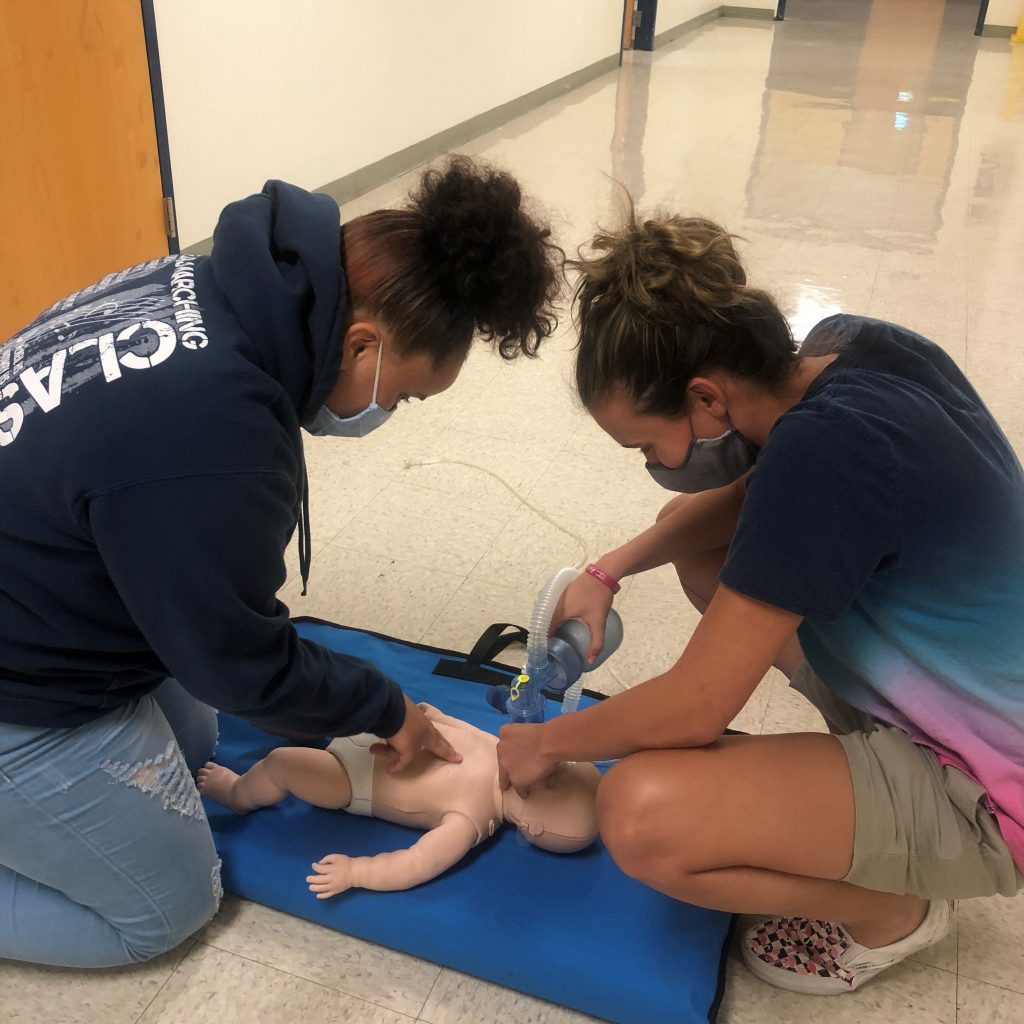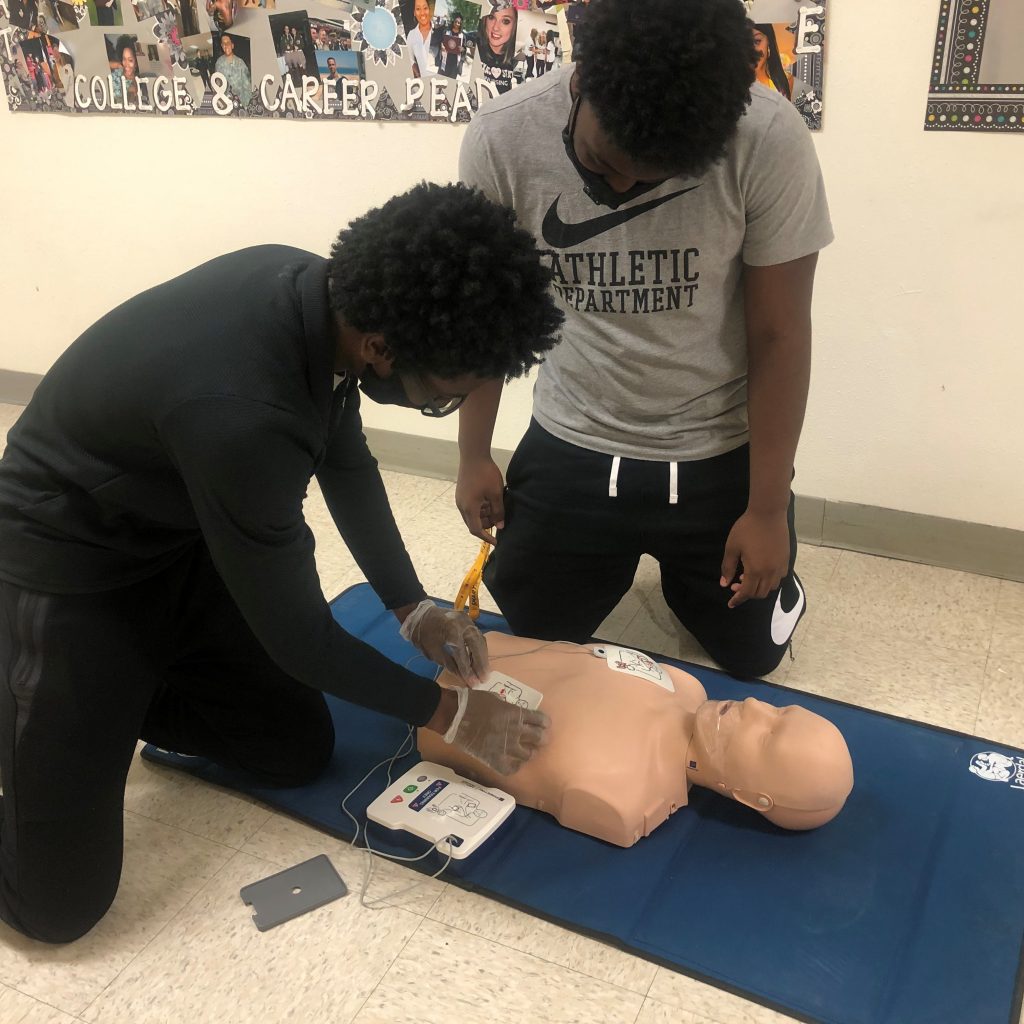Cove High students prepare to save lives
More than 475,000 people will die of cardiac arrest according to the American Heart Association. CPR, or cardiopulmonary resuscitation, is an intervention that can result in improved outcomes for those suffering from cardiac arrest. Students at Copperas Cove High School are learning to prevent the death of others through this life-saving procedure.
CCHS Health Sciences teacher Rebecka Shuffler is excited to have 103 students enrolled in the Health Science Theory Class and become eligible to obtain their CPR certification.
“About 46 percent of the time CPR is needed, it is done by a bystander and I feel better knowing that my students have the knowledge and skills to be able to help if the need were to arise,” Shuffler said. The goal of a CPR attempt is the return of circulation to get the person’s heart beating independently again. Students don’t practice mouth-to-mouth resuscitation in the classroom. Students use a Bag Valve Mask that is a bag connected to a facemask. CCHS senior Alaura Gallups held the mask tightly to the manikin’s face and then squeezed the bag to push air into the lungs, replacing the need for human breath.

“Getting to do compressions on a manikin was insightful,” Gallups said. “I didn’t realize how fast you had to do compressions.”
Shuffler said the manikins are cleaned with hospital-grade germicidal wipes that meet the EPA’s criteria for use again the SARS virus and COVID-19.
“Students enrolled in Copperas Cove High School’s Health Science Theory course have the ability to become CPR Certified through the American Heart Association. This course typically costs $60-80, but is free to CCHS students. The only out-of-pocket expense for students is $6 for the card itself, as that is the fee directly from the AHA,” Shuffler said.
All students enrolled in the CCHS Health Science Theory class take the AHA course and test, but they are not required to obtain the $6 certification card. However, the certification is a requirement for students visiting the clinics, hospitals and nursing homes in other CCHS certification courses such as Certified Nursing Assistant and Certified Medical Assistant. In addition, the certification is required for employment in healthcare facilities. The certification
card shows that the holder is skilled in CPR, Automatic External Defibrillators, and choking interventions for adults, children, and infants.
Throughout the course, students watch videos, practice skills on manikins, and role-play various scenarios to develop their skills. In order to obtain the certification, students must pass a written exam with at least 84 percent accuracy and pass their skills testing with at least 80 percent accuracy.
Senior Nigel Freeman plans to pass the tests with top scores and receive his certification card from the AHA.
“I want to be able to save someone’s life-period,” Freeman said.

